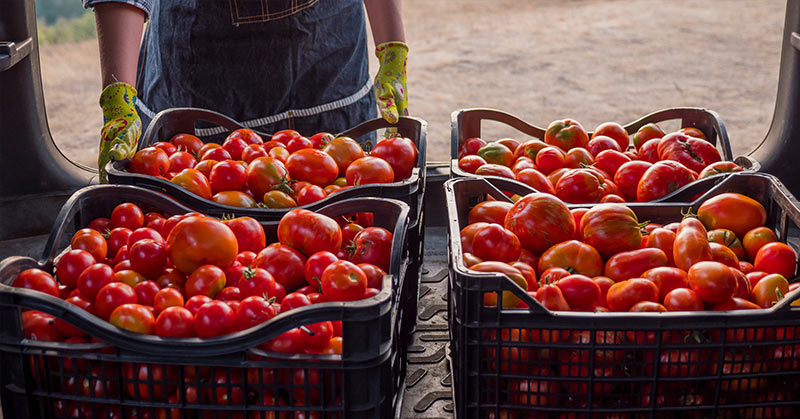The global outbreak of COVID-19 has had a drastic effect on economies in every country around the world. Hardly any industry has gone unscathed and we are staring down the barrel of the worst economic downturn since the 2008 financial crisis.
In times like these, it is always the small businesses that get hit the hardest. Municipalities and local shops, restaurants, and cafes have been encouraging those who are able to support these businesses as much as they can: order delivery, donate, and promote them. One industry that always seems to be forgotten in our increasingly urban lifestyles is the one that supplies those businesses: the farming industry.
Farmers are hit hard by COVID-19
With the closure of schools, hotels, restaurants, and other big buyers for the farming industry, farms have been left with a surplus of product and no one to sell it to. Most of this product, such as fish and meats, raw dairy, and fresh fruits and vegetables cannot be stored for any great length of time. For many farms, this has resulted in being forced to dump millions of gallons of milk, smash hundreds of thousands of eggs, and bury tens of thousands of pounds of fresh produce back into the soil. (1)
This has been a time of heartbreak for farming families as they have watched hours of hard work go to waste and thousands of dollars of future income be destroyed.
Read: Hospital Grows Organic Rooftop Garden
Florida Farmers are Selling Direct to consumers
There is not much support for the farmers currently, either, as policymakers are scrambling to find solutions. This has resulted in farmers trying to come up with other places to send their products. Many have been donating as much as they can to local food banks and shelters, however, these places only have so much capacity to accept and store these goods. Processing plants are largely at capacity, and the farmers themselves have limited cold storage of their own.
In Florida, where they have had the extra hit with the closure of the cruise line industry, farmers have taken to cutting out middle steps and selling directly to consumers. (2)
The Florida Department of Agriculture and Consumer Services has set up an online program to help connect consumers directly with their local farmers. In most cases, you will need the ability to go and pick up the products yourself, however, because you will be in direct contact with the farmers, you will be able to talk to them directly if you have transportation issues. (2)
If you live in Florida and want to connect with farmers near you, visit this link.
Read: Desert Farm Grows 17,000 Tons of Food without Soil, Pesticides, Fossil Fuels or Groundwater
Other Ways to Help Farmers During the Coronavirus Pandemic
There are several ways you can help your local farmers during this difficult time.
First of all, check to see if your local farmer’s market is still open. In Edmonton, Alberta in Canada, farmers have petitioned the federal government to name markets and everything along the food-supply chain essential. Following COVID-19 guidelines, markets have been able to remain open. (3)
If you are unsure if your local farmer’s market is still open, you can look in this directory to find more information on who you need to call.
Other options are food box delivery services:
- Consider signing up for the CSA (Community Supported Agriculture). This is a way you can access fresh produce straight from a local farmer.
- Many local farms either have their own or are a part of services that deliver boxes of fresh produce straight to your door. Check out this list of produce delivery services, sorted by where in the United States you live.
You can also simply look up some of your local farmers and find out if they are selling directly to consumers, or if they would be willing to.
The Bottom Line
We are all currently being forced to stay home, can’t go out to eat at restaurants, and have to cook most of our own food now. This means we all need fresh food – dairy, meats, and produce – at home. If we all do our part and buy our fresh foods from farmers, we will help to support them and their families, instead of buying products in grocery stores that have been imported from other places.
There has never been a better time to start buying and eating local.
Keep Reading: How One Man Turned His Backyard Garden Into a Full-Fledged Community Farmers Market

